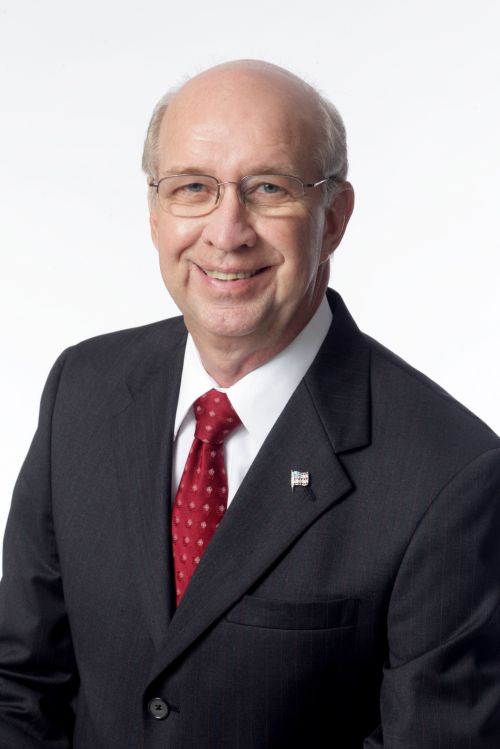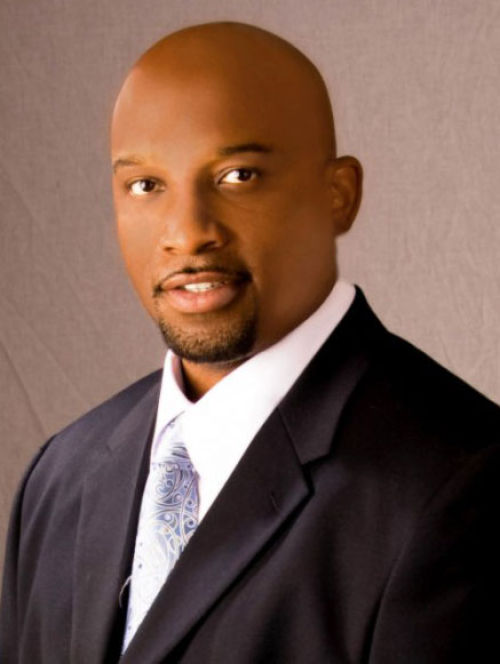
After 3 decades, Fletcher’s leader to step aside
April 15, 2014Randolph’s appeal set for May 22
April 15, 2014After winning his Senate seat in 2011, Troy Brown thought he knew a good deal about the role of government in peoples’ lives, through his work in construction and home health care.
Three years later, he acknowledges knowing a lot more, and he has already made clear that he will attempt to keep his seat when elections are held next year, because there is a lot of work to be done.
Brown, a Napoleonville native, says this year’s regular session has seen him focus on some key issues, with transportation funding at the top of the list.
Representing a district that includes three distinct regions of Louisiana – the Bayou Country, River Parishes and the Capitol area – Brown has had little trouble identifying the need.
All of the parishes in his district are growth areas, he said, and without transportation growth cannot occur at a healthy pace.
Brown is convinced he can achieve success, pointing to successes earlier in his freshman term.
They include creation of the Southeast Louisiana Task force for Growth and Opportunity, with an eye toward creating a governmental body that would design policy and programs paid for by grants in support of human resources, transportation, health care, law enforcement, housing, education and infrastructure.
This year, he has strong support for legislation that would provide a way for corporations to enter into agreements with local municipalities and parishes for road building and related projects.
SB 297, Brown said, will remove the logjam related to road projects.
“Louisiana has a huge amount of need but a small amount of revenue,” Brown said. “We are always penny-pinching to get a little bit done here and a little bit done there. We are sitting on $12 billion in transportation backlogs alone. This bill would allow local municipalities, sheriffs, school boards, other taxing bodies to be able to negotiate with large corporations who have tax obligations in their area to have corporations dispense capital outlay, with the means of payback a tax break or inventive.”
Terrebonne – part of which is in his district – is what Brown described as a place of “massive growth.”
“The parish as a whole has a huge revenue stream, to where they could assist with projects the state has put on the back burner, by way of utilizing a road swap,” he said. “A parish may already take control of a state road with continued maintenance and upkeep. But rather than the parish using just their revenue they could partner with a corporation. As your infrastructure is enhanced your growth continues to grow. If you enhance your infrastructure more business and more growth is going to come, so you minimize the loss that comes with the payback.”
Another area of key interest for Brown is the controversy over legacy lawsuits. Legislators are seeking a way to have lawsuits for environmental and property damage made against oil and gas companies more difficult to file. Brown said he is studying the issue carefully, and that although he recognizes the oil companies must be treated fairly, he does not want to restrict the ability of property owners to fairly claim what should be theirs.
“The oil industry has been lobbying in a major way to circumvent going through the court systems,” the Democrat said. “I have concerns on both sides of the argument. As a legislative body, we are elected by people to serve people as well as businesses. But our first concern should be our people, rather than the damaging and looting of our state due to these issues. I do not believe the oil industry is our sole contributor.”
For that reason and others, Brown said, the oil industry should not bear the full brunt of environmental payback simply because it has deep pockets.
Brown’s district is geographically diverse; but then so is his background.
His family hails from Lafourche and Terrebonne, and his home health care business is based in Thibodaux.
Seventy-five percent of his native Assumption is included.
Also in the mix is 40 percent of Ascension, half of Iberville and half of West Baton Rouge, as well as 95 percent of St. James and 65 percent of St. John. There is also, he notes, “a small touch of St. Charles.”
One of the biggest things Brown has learned is the extent of influence lobbyists have within the lawmaking body within which he serves.
“The huge hurdle that we run into is that we must find a happy medium between the special interests and our people,” Brown said. “If the scale is tipped on behalf of constituents too much, businesses pull out of Louisiana. And we don’t want to hinder business because business makes our area grow. But constituents are our voters.”
Brown has also marveled at the degree to which work done in the Legislature affects the lives of every Louisianan on a variety of fronts.
“We make laws relating to every sector of peoples’ lives, from the country roads to the interstate roads, everything going on in the state.”
As he works through this session Brown has his eyes on the next few, presuming his re-election, and confident that any governor other than Bobby Jindal – who is term-limiting out and appears to have his eyes on Washington – will see the wisdom of signing on to Medicaid expansion as a component of the Affordable Care Act.
“Medicaid expansion would take care of 100 percent of our budget for the first three years,” Brown said. “If we do that our financial crisis problems will go away.”










